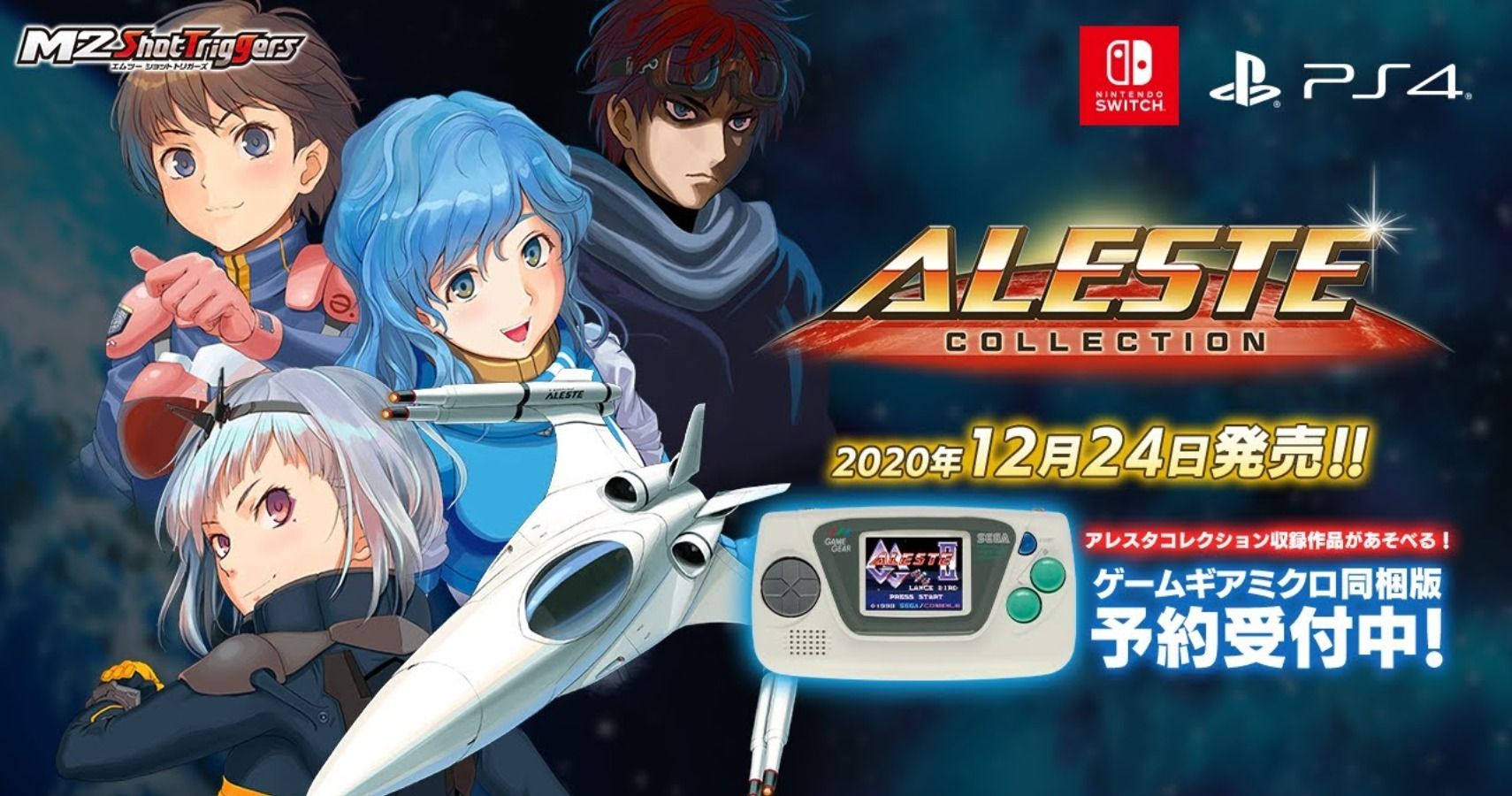The Aleste Collection recently launched for the PlayStation 4 and Nintendo Switch exclusively in Japan. And while there’s been no announcement if there’s going to be a English localization of the collection, the game’s newly released trophy collection hints that there might be plans for localization somewhere down the line
As spotted by Exophase, the trophy list of the Aleste collection has an English version on the PlayStation database, suggesting that the shoot ‘em up title might finally sail West.
The Aleste Collection is made up of a number of the games in the series, including Aleste (1988, Sega Mark III), GG Aleste (1991, Game Gear), GG Aleste II (1993, Game Gear), Power Strike II (1993, Sega Master System), and GG Aleste 3 which was made exclusively for Game Gear.
While this may not mean anything, developer M2 only recently released an English version of Ketsui Deathtiny: Kizuna Jigoku Tachi in North America, a whole two years after the game’s 2018 release in Japan. Then again, an English trophy list for M2’s previous game, ESP Ra.De. Psy, also appeared online during its launch in December 2019, but there has been no word from the has developer about an English localization yet.
The plot of the original Aleste is as Terminator as it can get; in the near future, the man made supercomputer, DIA 51, gets infected by a hybrid virus which leads to the supercomputer decimating most of the human race. Yuri, the protagonist's girlfriend is critically injured in one particular attack by DIA 51. This prompts Ray to jump into his Aleste fighter to rid the world of DIA 51 once and for all. A maverick move indeed!
While the game was exclusive to the Sega Master system in Japan, it was available outside the country as Power Strike as a mail-only limited edition. There were very few retail outlets, like Toys R' Us, that stacked the game on its shelves. Later that year, the game also came to the MSX2, featuring two new levels and a bunch of cutscenes. The MSX2 version was later ported to mobile devices by Square Enix and Macrospace in 2004.

